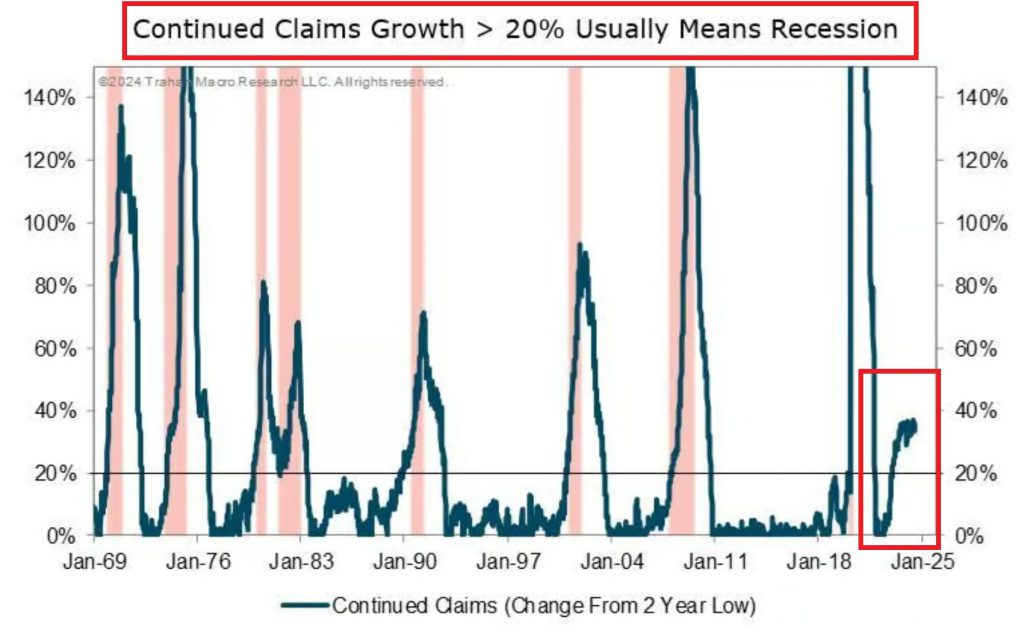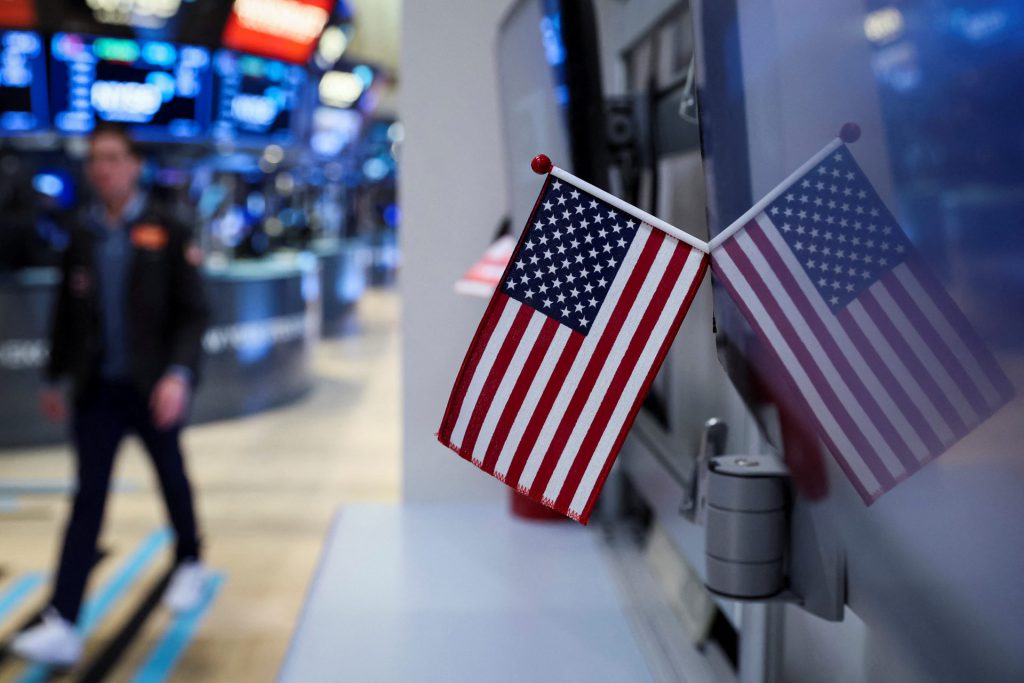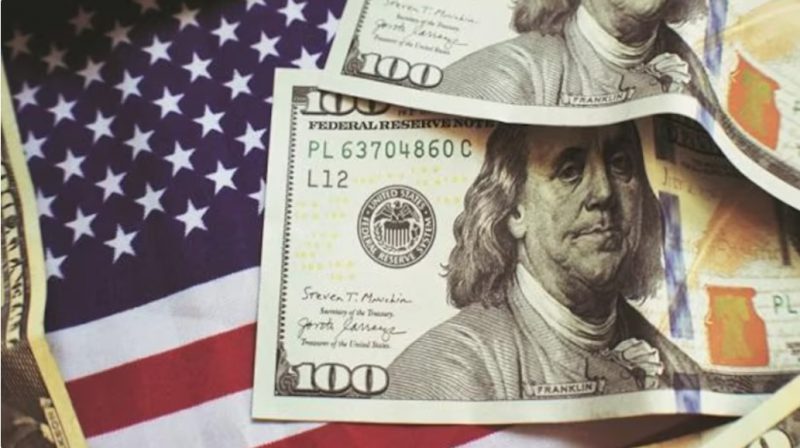The U.S. unemployment rate has touched 4.10% in June and is up 0.1% from May 2024. The rise in unemployment is a cause of concern as it adversely affects the U.S. economy and the overall markets. The rise in unemployment benefits is leading to calls for a recession that could hit the U.S. economy soon.
Also Read: U.S. Dollar Rises After Joe Biden Ends Presidential Campaign


Financial analysts have been predicting that a recession will hit the U.S. economy during the second half of 2024. Leading global investment banks like JP Morgan and Standard Chartered, among others have predicted the same. Read here to know what JP Morgan thinks could happen to the economy next.
Also Read: Currency: U.S. Dollar Shows No Mercy to the Indian Rupee
Recession Warning Rises After U.S. Unemployment Benefits Surge in 2024


Global Markets Investor posted on Twitter explaining that a recession followed whenever unemployment benefits spiked in the U.S. The data shows that when people receiving unemployment benefits climbed more than 20%, a recession followed.
In this case, the unemployment benefits spiked more than 30% in the last two years. The COVID-19 lockdowns led to massive jobs cuts with people living paycheck-to-paycheck.
Also Read: Analyst Predicts Gold Price If Donald Trump Becomes President
“Another U.S. recession warning. The number of people receiving unemployment benefits spiked by >30% over the last 2 years. Highest increase since the COVID crisis,” said Global Markets Investor in a tweet. “In the past, every time when the U.S. continued jobless claims rose more than 20% from their lows, a recession followed,” it read.
The tweet suggests that if we follow the pattern, the U.S. could be on the brink of another recession. This comes at a time when the country is grappling to control inflation. In addition, the national debt is skyrocketing and has climbed above the $34 trillion mark this year. If more people continue claiming unemployment benefits in the coming months, the risk of a recession in the U.S. will significantly increase.





